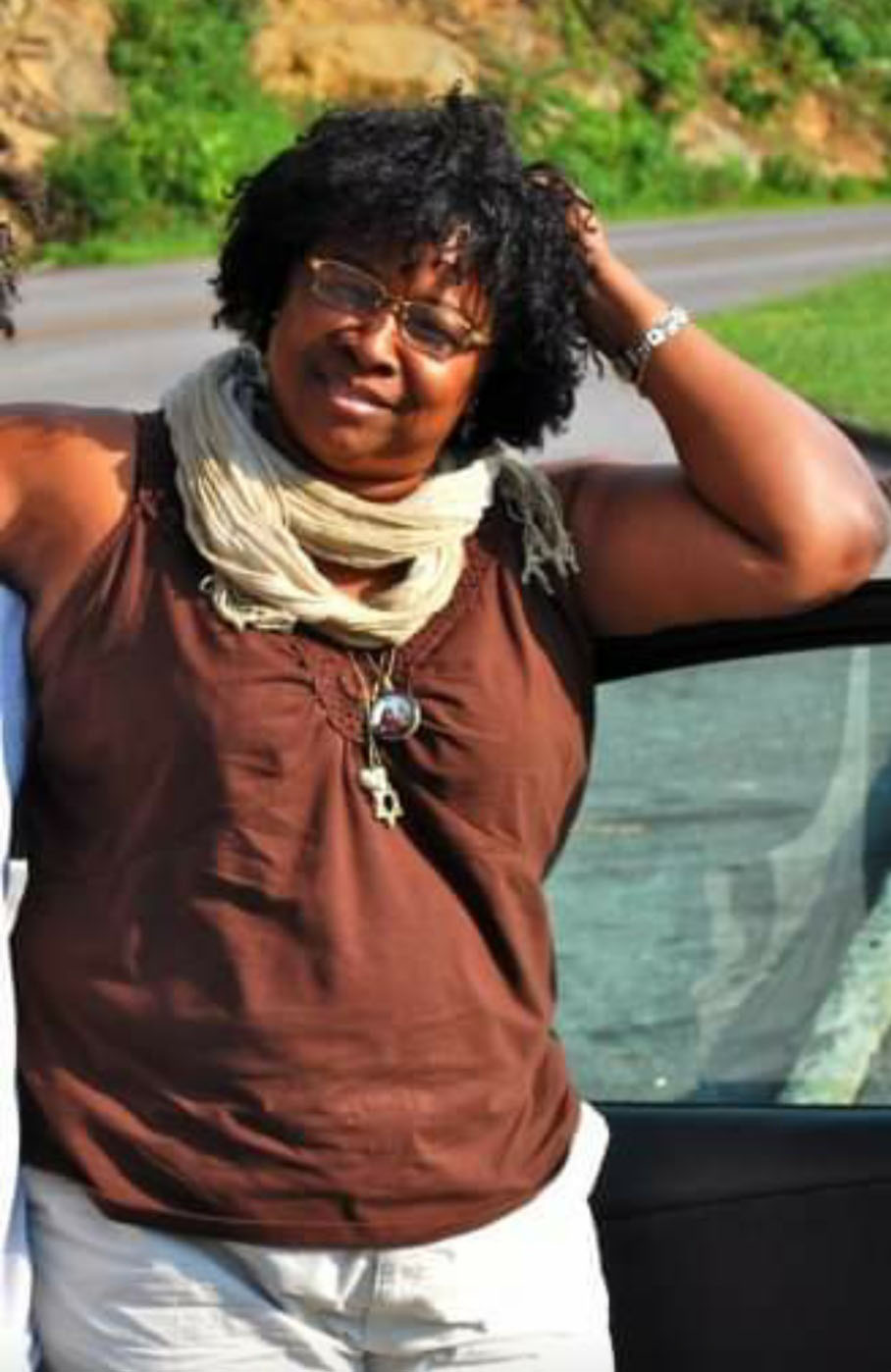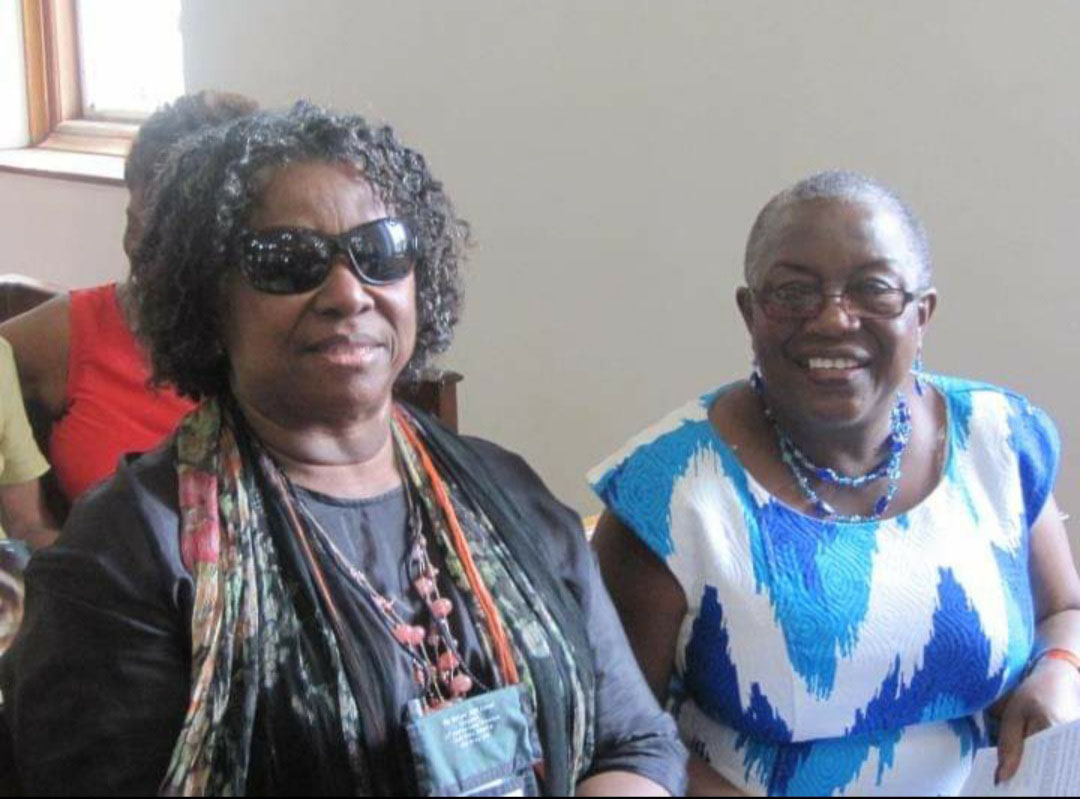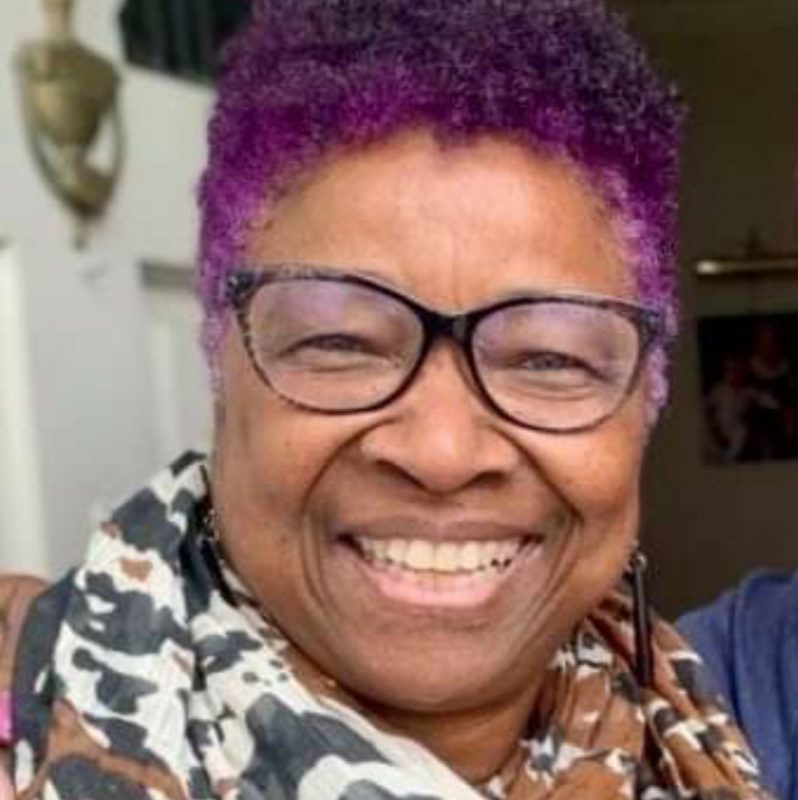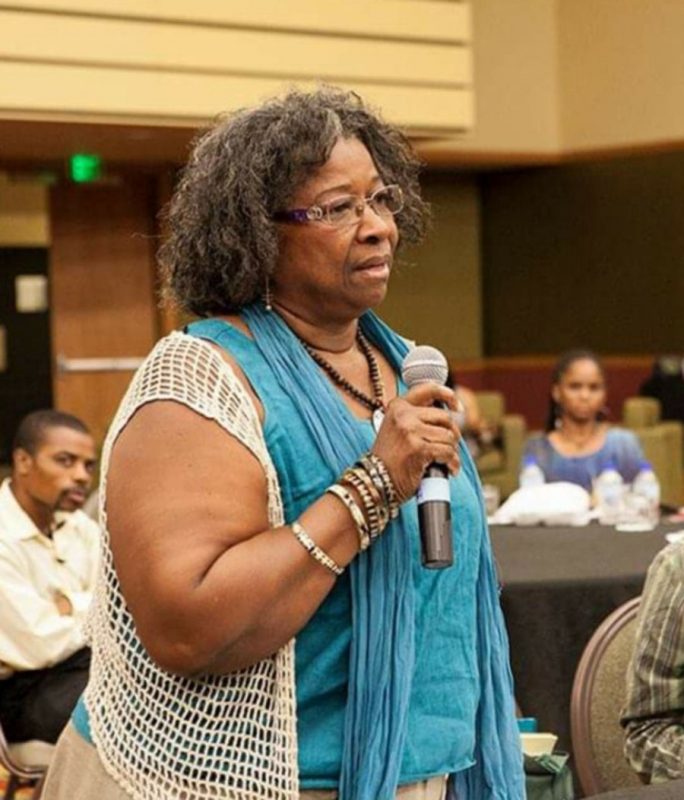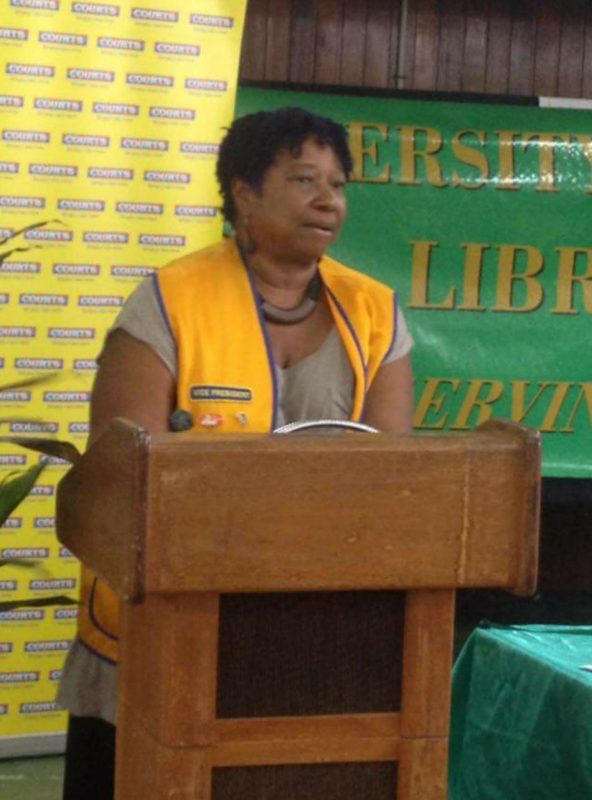Shortly after Jocelyne Josiah’s student application for entry to the University of Guyana (UG) was rejected, supposedly based on her qualifications and teaching experiences, she was accepted at the University of Waterloo (UofW) in Ontario, Canada.
The polyglot, communications specialist and international public servant, who is now 75, subsequently graduated from UofW with a bachelor’s degree in modern languages, with first class honours and won herself a scholarship from the university to complete her master’s degree.
After leaving the Bishops’ High School (BHS) with, as she put it, “barely enough qualifications to find work,” Josiah, who was born in Nabaclis, East Coast Demerara, but grew up in Kitty and Campbellville, began to teach art and music at East Ruimveldt Secondary School in 1966. She subsequently taught temporarily at other schools.
At BHS, where she was from 1959 to 1966, she told Stabroek Weekend, she was more interested in extracurricular activities than academics. She had successfully written art at the General Certificate of Education Ordinary Level, music up to Grade Four and was in the BHS choir. “It was only when I left school I realised I had to dig up because I had to do something with my life,” she said. “There was quite a lot I was able to give.”
Acting teachers were being encouraged to become trained teachers, but Josiah was not interested in teaching as a career. “I applied to UG to do a bachelor’s degree but UG didn’t accept me. Either my grades weren’t good enough for them, or they didn’t consider my practical experience sufficient. I decided there was nothing in Guyana for me.”
She joined one of her sisters in New York with the expectation that she would work nights and study during the day to see herself through university. “When my sister saw my excitement, she said, ‘New York is not the place for you’,” she recalled.
With her sister’s advice her brother, who lived in Toronto, Canada took her over there with him.
That year she was accepted at UofW to pursue a modern languages degree majoring in French and Spanish. She had a few role models from the BHS who had done languages and had returned home with a layer of sophistication after spending a year in France, around the time she was teaching at East Ruimveldt Secondary.
“From the time I got to Waterloo, I said I wanted to graduate with an honour’s degree and I want to spend my junior year in France,” she said.
She spent her junior year at the University of Dijon in France. After completing her bachelor’s degree, the UofW offered her an assistantship and a scholarship to do her master’s degree.
To do modern languages she had to study Latin. “I was not interested in any Latin at Bishops. I played around in Viola Burnham’s class. When I got to Waterloo and had to do Latin, it was hell. I stuck through it, got a pass mark and moved on,” she recalled.
For her master’s thesis she chose the French West Indian woman as the subject. The UofW had no advisor for her subject and she consulted with a Professor Fred Case of the University of Toronto, who was related to the then Guyanese chief education officer with the same name.
To complete her thesis, she spent some time in Martinique, then went to Togo in West Africa.
After Waterloo she joined the staff of Barber-Scotia College in Concord, North Carolina, USA, where she taught French and Spanish for two years.
“At that time, everyone was into Black Power,” she recalled. “Teaching at Barber College, I got the impression students weren’t serious and conscious enough of who they were and what Black Power really meant. The college was down the road from Kannapolis, the seat of the Grand Dragon, a white supremacy organisation. There were white teachers teaching on the campus and students burnt crosses on the campus’ lawns. I tried to get the students to be a bit more conscious about themselves and their future. With the authorities’ permission, we invited Afrocentric historian/author Yosef Ben-Jochannan, who lectured at street corners in New York on Black history, to the college campus.
“He was one of the first people I heard speak about Cheikh Anta Diop, a physicist from Senegal, who said the ancient Egyptians were Africans and Black. Ben-Jochanan’s lecture changed the perspective of a lot of students who had only seen themselves as children of slaves and fighting in the system.”
International experience
Not feeling fulfilled in North Carolina, Josiah returned to Canada. She found employment in development education with the Cross Cultural Learner’s Centre, University of Western Ontario.
“My role with others was to educate Canadian groups and individuals about what the New International Economic Order (NIEO) meant, so Canadians understood they were not giving charity to the developing countries and that developing countries were asking for what they duly deserved. It was that time when the Arabs were developing their cartels [that] the NIEO came into being,” she related.
As part of her duties, Josiah was sent to the United Nations General Assembly to meet the delegations’ leaders from Third World countries on their position on the NIEO. From those meetings she developed an interest in the concept of development.
She wanted to assist in the development of the Caribbean and in 1976, she secured a job as the research and conference officer in the Caribbean Community Secretariat in Georgetown.
“It was a good learning experience. At Caricom there was a lot of language and things to learn in economics, health and developmental areas. I began to feel inadequate and I thought I needed to get more deeply into this,” she said.
She left in 1978 to obtain a post graduate diploma in development studies, which was conducted in French, from the Graduate Institute of Development Studies, University of Geneva. “That was my launch into international work.”
During her studies she had a temporary job with the United Nations Institute for Training and Research (UNITAR). While still at UNITAR and in her final year at the university she saw three vacancies advertised for UNESCO on the notice board. She applied for all three and secured one as a publications assistant at UNESCO headquarters in Paris, France from August 1981.
One of the main areas she worked on was UNESCO’s annual publication ‘Study Abroad’, a reference tool for students and academics. It featured scholarships and programmes offered globally at undergraduate, graduate and postgraduate institutions, academic seminars and fellowships. She also wrote the bulletin for the book development department at UNESCO. She soon got tired of research and she told her superiors she wanted to get into development and active field work.
Development communication
By 1984 she started working in the Development Division of UNESCO. “Life became more exciting. I got to be part of the international programme for the development of communication.”
Josiah had more interactions with government representatives, heads of institutions and non-governmental organisations (NGOs) from around the world. She listened to their needs, helped them to formulate responses and sought funding to assist them in carrying their programmes forward. “In the communication fields, I found radio and television attractive.”
As she had no journalistic background, Josiah applied to Radio Netherlands Training Centre in Hilversum, the Netherlands to complete a course in television production. “That helped a lot.”
Josiah pioneered the introduction of UNESCO television co-productions among developing countries. “It was a way of bringing television stations and production companies to work together across developing countries to come up with a common product.”
One of the productions, Crossing Over was done by Banyan Productions of Trinidad and Tobago (TT) and the National Film and Television Institute of Ghana. “We took a team from TT to Ghana to work with the Ghanaians on their highlife music. A team from Ghana went to TT. They all visited the other’s countries for the first time. They looked at calypso and highlife music, brought them together and showed the similarities and the crossing themes that were involved in it.”
Another co-production involved Ghana and Seychelles on the life of Ghanaian King Prempeh, who the British had exiled to Seychelles and where he and his retinue lived for a number of years. Prempeh was later moved to St Vincent and the Grenadines. “They were able to make linkages with the families, all through a television production.”
Josiah was involved in the evolution of the Zimbabwe Film and Television Institute, which started with a two-week workshop funded by the Norwegians, to train producers in television production. The Zimbabweans continuously expanded the training until they needed a building to facilitate full-time training. “They came to us to help them to set it up. The Norwegians helped with the equipment and UNESCO sourced all the training and trained trainers. That is one of the reasons I like development work and working with people, working with them from scratch.”
Josiah took a keen interest in the development of community radio, community television, community newspapers, starting with newspapers.
The civil society organisations interested in community media approached UNESCO through their governments. Josiah and others visited the communities, heard about their issues from the people and their leaders and worked out with them the best ways of using community media to try to overcome those problems. UNESCO started with community newspapers, trained a handful of people with basic education in techniques in the production and how to circulate them.
Generally, the response to the community newspapers, she said, was amazing when those producing the community newspapers were interviewed by radio stations and politicians responded to their requests.
Caribbean desk
From Paris, France, Josiah moved to Kingston, Jamaica to head UNESCO’s Caribbean communication programme. From 1993 to 2004, she was involved in regular radio, television and newspapers through the Caribbean Broadcasting Union, other organisations and interacting with regional governments while trying to push community media.
In Cuba, under her watch, Television Serrana was set up in a remote area in the Sierra Maestra mountains, where people moved on horseback, because residents were not getting signals. With UNESCO’s help, the people built a production studio at the foot of the mountain and trained young people from the area in production techniques. “The concerns of these communities were aired fully for those who could make a defence in their decision-making.”
She also helped Cuba to set up a station at Isla de Juventud because they were getting more signals from the Cayman Islands than from Havana.
Also under Josiah’s watch, UNESCO helped the community television, Gayelle TV, in TT to get underway.
She related, “We set up four radio stations at the four corners of Haiti in the remotest of areas. The Haitian government wanted to improve their communication in those communities because they weren’t getting signals from Port-au-Prince but were getting signals from other countries.
“When we went in, the Americans were very active in Haiti and they didn’t like the president, Jean-Bertrand Aristide. They persuaded the people in the villages to carry programmes that were anti-Aristide. Eventually they took them over.”
Josiah opined that unless civil societies are strong enough, the larger commercial and government stations would eat the community stations up.
Other radio community stations set up during Josiah’s tenure were in Dominica, Jamaica, Suriname, TT, St Vincent and the Grenadines and Suriname. All were solar powered to give them sustainability, technically. “In Barbados we helped them to set up a campus radio station, GEB, at Barbados Community College.”
Josiah was instrumental in setting up campus radios and campus televisions in other parts of the world including the Caribbean School of Media and Communications in Jamaica and a radio station at the Centre for Communication Studies at UG. She was also instrumental in setting up the Creative and Production Training Centre in Jamaica.
Josiah came together with a Latin American colleague who was doing the same work, trained people in production techniques and evaluated their success and challenges in the different countries. “We also had libraries and archives as part of the development of community media.”
Radio Paiwomak
In Guyana, Josiah said, UNESCO tried to explain the concept of community radio, but the government would not listen.
“They were afraid of putting radio in the hands of communities,” she recalled. “Eventually we came to an agreement to set up a radio station in Annai through the National Communications Network (NCN) as an arm of Iwokrama to educate the communities around, on the environment and sustainable development. We trained a group of young people; a local headmaster was the station master. We tried to get the local people from the community involved as much as possible.
“Radio Paiwomak calls itself a community radio but it never functioned as such. They broadcast on one of NCN’s frequencies. The staff, who were supposed to be volunteers, were paid a salary by NCN. Once that happened, it was no longer a community station. One of the positives that came out of volunteering was to train local people in a different technique of radio production that was community based with a lot of community participation that the regular public radio does not have the time to do. The community radio station was supposed to be self-sustainable. That concept was kind of lost in Guyana.”
She noted that AMARC (the International Association of Community Radios) would never include Radio Paiwomak as a member, under the current structure, because it does not fit the criteria. “All the other stations they have put up are branches of NCN like Radio Paiwomak. I have told that to NCN several times. When I was on the board of the Guyana National Broadcasting Authority, I told NCN they should not be calling them community radios because they are not.”
India
After 11 years in Jamaica, Josiah was assigned to India where she was UNESCO’s advisor for communication and information for the six countries of South Asia – Nepal, Bhutan, Bangladesh, India, Sri Lanka and the Maldives. She was in India from 2004 to 2008 after which she retired from active international public service.
“India was quite an experience. When I went there, India was just getting into community radio,” she recalled. “All these stations were popping up all over the place. India is a big place. Their broadcasting policy had nothing much to say about community radio. The NGOs fought for a policy on community radio until it was developed and introduced with their participation. I was there as a part of the discussions. At my level, I had to advocate for the government, head of the broadcasting commission and other influential people to accept the policy. “By the time I was ready to leave the new technologies, the internet and social media, were beginning to take hold.”
Humanitarian work
When she returned to Guyana, Josiah wanted to experience working on the ground looking up because in the past she had worked at the top looking down. She joined Georgetown D’Urban Park Lions Club and the Girl Guides Association to make her contribution. She had been a girl guide at the BHS.
About five years ago, the Girl Guides set up the Muriel Wright Scholarship programme to encourage more young girls to participate in it and to help some meet their learning needs.
She served her Lions Club as president for a year. She is also involved in the club’s bursary and scholarships programmes which are mainly funded by Chartered Accountancy firm Ram and McRae, as well as its library and reading programme.
When she was president, children were using a plank to get across a trench between Lamaha Springs and Tucville to go to school. “We, Lions, came together and worked with the communities to build a bridge so the children could cross safely to go to school,” she said.
She joined the Lions because, she said, rather than sitting down writing cheques and allowing things to happen, Lions get down into the communities and do it themselves thereby inspiring people.
